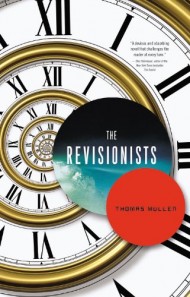The Leisure Seeker--Michael Zadoorian

Sometimes you're browsing through the fiction in the library and for no reason at all a book falls off the shelve and into your hands. You look into it, evaluating, wondering. You're caught by a sentence on the first page, or perhaps your eye crosses a paragraph further on in the novel and you're caught. I have many such experiences, but, like most blind dates, they don't work out. You take them home for a leisurely read and you wonder, "Now what exactly did I see in this book?" I bring home piles of books every week. In fact, I am single-handedly responsible for keeping the library funded in my county--I keep those books and other materials moving in and out at a pace defying imagination. Bring home two bags with thirty potential candidates and wind up returning sixteen of them the next week. The others age well on my to-be-read shelf, but eventually they too make it back to the library--mostly unread. Michael Zadoorian's book was one s...






